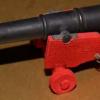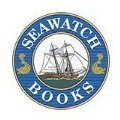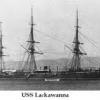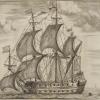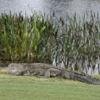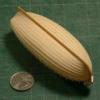MORE HANDBOOKS ARE ON THEIR WAY! We will let you know when they get here.
×
-
Posts
1,763 -
Joined
-
Last visited
Reputation Activity
-
 Mark P got a reaction from SeaWatch Books in SeaWatch Books is Open!
Mark P got a reaction from SeaWatch Books in SeaWatch Books is Open!
Good News for all nautical book addicts:
I have just ordered the three volumes of Ed Tosti's Young America work (more for techniques, tips and jigs, as I am unlikely to ever build the model) and not only is there a discount for purchasing the three together, the postage for all three to England was only $35 total. Shipping costs have indeed been reduced dramatically.
All the best,
Mark P
-
 Mark P got a reaction from Canute in SeaWatch Books is Open!
Mark P got a reaction from Canute in SeaWatch Books is Open!
Good News for all nautical book addicts:
I have just ordered the three volumes of Ed Tosti's Young America work (more for techniques, tips and jigs, as I am unlikely to ever build the model) and not only is there a discount for purchasing the three together, the postage for all three to England was only $35 total. Shipping costs have indeed been reduced dramatically.
All the best,
Mark P
-
 Mark P got a reaction from Ryland Craze in SeaWatch Books is Open!
Mark P got a reaction from Ryland Craze in SeaWatch Books is Open!
Good News for all nautical book addicts:
I have just ordered the three volumes of Ed Tosti's Young America work (more for techniques, tips and jigs, as I am unlikely to ever build the model) and not only is there a discount for purchasing the three together, the postage for all three to England was only $35 total. Shipping costs have indeed been reduced dramatically.
All the best,
Mark P
-
 Mark P got a reaction from JpR62 in SeaWatch Books is Open!
Mark P got a reaction from JpR62 in SeaWatch Books is Open!
Good News for all nautical book addicts:
I have just ordered the three volumes of Ed Tosti's Young America work (more for techniques, tips and jigs, as I am unlikely to ever build the model) and not only is there a discount for purchasing the three together, the postage for all three to England was only $35 total. Shipping costs have indeed been reduced dramatically.
All the best,
Mark P
-
 Mark P reacted to Waldemar in Mathew Baker's early concept of ship hull design, ca. 1570
Mark P reacted to Waldemar in Mathew Baker's early concept of ship hull design, ca. 1570
Interpretation of Baker's universal ship drawing would perhaps not be entirely complete without at least attempting to establish another issue of conceptually capital importance, namely the position of the two quarter frames. If the fore quarter frame is clearly located at the keel and stempost junction, how did Baker determine the position of the aft quarter frame?
Early Mediterranean shipbuilding texts use the term 'ferir' or 'fiero' to denote the distance of the two quarter frames from their respective posts. However, none of these texts specify this in sufficient detail and, in particular, which points on the posts were taken into account. The following interpretation explains how Baker might have done this and, within drawing tolerances, fits very well with the lines drawn by Baker's own hand.
First, the master frame was placed at 1/3 of the keel length. Then the horizontal distance between the master frame and the height of tuck was divided into five parts. At 2/5 from the sternpost, Baker placed the aft quarter frame.
As it happens, the value of the 'ferir' thus defined is the same for bow and stern.
-
 Mark P got a reaction from georgeband in Sizes and shapes of casks and barrels of the Royal Navy
Mark P got a reaction from georgeband in Sizes and shapes of casks and barrels of the Royal Navy
Good Evening Bruce;
One small point to note is that there does not appear to have been a standard stave width, with the cooper making a stave as wide as each piece of wood would allow. I have seen old barrels, and frequently the staves vary in width quite noticeably.
All the best,
Mark
-
 Mark P got a reaction from tkay11 in Sizes and shapes of casks and barrels of the Royal Navy
Mark P got a reaction from tkay11 in Sizes and shapes of casks and barrels of the Royal Navy
Good Evening Bruce;
One small point to note is that there does not appear to have been a standard stave width, with the cooper making a stave as wide as each piece of wood would allow. I have seen old barrels, and frequently the staves vary in width quite noticeably.
All the best,
Mark
-
 Mark P got a reaction from mtaylor in Sizes and shapes of casks and barrels of the Royal Navy
Mark P got a reaction from mtaylor in Sizes and shapes of casks and barrels of the Royal Navy
Good Evening Bruce;
One small point to note is that there does not appear to have been a standard stave width, with the cooper making a stave as wide as each piece of wood would allow. I have seen old barrels, and frequently the staves vary in width quite noticeably.
All the best,
Mark
-
 Mark P got a reaction from trippwj in Sizes and shapes of casks and barrels of the Royal Navy
Mark P got a reaction from trippwj in Sizes and shapes of casks and barrels of the Royal Navy
Good Evening Bruce;
One small point to note is that there does not appear to have been a standard stave width, with the cooper making a stave as wide as each piece of wood would allow. I have seen old barrels, and frequently the staves vary in width quite noticeably.
All the best,
Mark
-
 Mark P got a reaction from bruce d in Sizes and shapes of casks and barrels of the Royal Navy
Mark P got a reaction from bruce d in Sizes and shapes of casks and barrels of the Royal Navy
Good Evening Bruce;
One small point to note is that there does not appear to have been a standard stave width, with the cooper making a stave as wide as each piece of wood would allow. I have seen old barrels, and frequently the staves vary in width quite noticeably.
All the best,
Mark
-
 Mark P reacted to druxey in Sizes and shapes of casks and barrels of the Royal Navy
Mark P reacted to druxey in Sizes and shapes of casks and barrels of the Royal Navy
Also, don't forget that powder barrels were made differently without metal hoops!
-
 Mark P got a reaction from davyboy in Royal navy - stern colours?
Mark P got a reaction from davyboy in Royal navy - stern colours?
Good Evening Allan;
I would not be guided too much by the colours displayed in the model of Granado. Whilst she is a beautiful model, I am pretty sure that it was actually constructed by Bob Lightley? in the 20th century, and purchased by the NMM at around the same time as they also bought the excellent model of the Egmont, built by (Oh God! I can't remember his name! Mind is going!)
Which is not to say that the colours shown are not in accordance with contemporary sources, of course.
All the best,
Mark P
-
 Mark P reacted to Roger Pellett in Royal navy - stern colours?
Mark P reacted to Roger Pellett in Royal navy - stern colours?
Several years ago the Nautical Research Journal published an article about a model of USS Arizona built for the visitors center at Pearl Harbor. A good bit of the article involved her surprisingly complex paint scheme at the time of the attack. It seems that there is debate even for this well documented major warship sunk 81 years ago.
The chances of finding a definitive paint scheme for a small vessel that sailed 270 or so years ago would seem to be nonexistent.
Roger
-
 Mark P got a reaction from Canute in Royal navy - stern colours?
Mark P got a reaction from Canute in Royal navy - stern colours?
Good Evening Allan;
I would not be guided too much by the colours displayed in the model of Granado. Whilst she is a beautiful model, I am pretty sure that it was actually constructed by Bob Lightley? in the 20th century, and purchased by the NMM at around the same time as they also bought the excellent model of the Egmont, built by (Oh God! I can't remember his name! Mind is going!)
Which is not to say that the colours shown are not in accordance with contemporary sources, of course.
All the best,
Mark P
-
 Mark P reacted to druxey in Mathew Baker's early concept of ship hull design, ca. 1570
Mark P reacted to druxey in Mathew Baker's early concept of ship hull design, ca. 1570
I'm sorry to read your response, Waldemar, and will politely withdraw from this discussion.
-
 Mark P reacted to allanyed in Royal navy - stern colours?
Mark P reacted to allanyed in Royal navy - stern colours?
You are absolutely correct Mark. I went to the site and it does indeed give credit to Mr. LIghtley.
Thanks for the catch!!
Allan
-
 Mark P reacted to Roger Pellett in Royal navy - stern colours?
Mark P reacted to Roger Pellett in Royal navy - stern colours?
The very first issues of the now defunct magazine Model Shipwright featured a series of articles by the South African model builder Bob Litchey (sp?) about building a model of Grenado. I am quite sure that this is the same model that Allen posted above from the RMG collection. It dates from c1975.
Roger
-
 Mark P reacted to druxey in Royal navy - stern colours?
Mark P reacted to druxey in Royal navy - stern colours?
Yes, that is the Robert Lightley model, Roger.
-
 Mark P reacted to druxey in Mathew Baker's early concept of ship hull design, ca. 1570
Mark P reacted to druxey in Mathew Baker's early concept of ship hull design, ca. 1570
I'm sorry to say that your post #75 and #78 to Wayne is, to put it charitably, unkind. Perhaps - assuming that English is your second language - you did not intend it to be a sharp as it reads, but that is the way I took it. Please be more careful. I take this thread to be an academic exercise of enquiry for respectful discussion.
Now, I've looked at your range of stern post rakes and find that 18 degrees has a ratio of 1:3, and 22.5 degrees is 1:2.5 within experimental limits. I still think that you might consider the validity of constructing angles by ratio.
-
 Mark P got a reaction from allanyed in Royal navy - stern colours?
Mark P got a reaction from allanyed in Royal navy - stern colours?
Good Evening Allan;
I would not be guided too much by the colours displayed in the model of Granado. Whilst she is a beautiful model, I am pretty sure that it was actually constructed by Bob Lightley? in the 20th century, and purchased by the NMM at around the same time as they also bought the excellent model of the Egmont, built by (Oh God! I can't remember his name! Mind is going!)
Which is not to say that the colours shown are not in accordance with contemporary sources, of course.
All the best,
Mark P
-
 Mark P got a reaction from Bob Legge in Mathew Baker's early concept of ship hull design, ca. 1570
Mark P got a reaction from Bob Legge in Mathew Baker's early concept of ship hull design, ca. 1570
Good Morning Waldemar;
You may find the following description of the construction of a mid-ship mould, by Matthew Baker, to be of use. This is from a contemporary document in the British Library, which I transcribed several years ago.
All the best,
Mark P
Matthew Baker How to draw Mid section MSW.pdf
-
 Mark P got a reaction from mtaylor in Royal navy - stern colours?
Mark P got a reaction from mtaylor in Royal navy - stern colours?
Good Evening Allan;
I would not be guided too much by the colours displayed in the model of Granado. Whilst she is a beautiful model, I am pretty sure that it was actually constructed by Bob Lightley? in the 20th century, and purchased by the NMM at around the same time as they also bought the excellent model of the Egmont, built by (Oh God! I can't remember his name! Mind is going!)
Which is not to say that the colours shown are not in accordance with contemporary sources, of course.
All the best,
Mark P
-
 Mark P reacted to trippwj in Mathew Baker's early concept of ship hull design, ca. 1570
Mark P reacted to trippwj in Mathew Baker's early concept of ship hull design, ca. 1570
One consistent challenge in utilizing modern methods to reimagine old drawings is the urge to ignore the technological capabilities of the time. A modern CAD program and basic calculator bring levels of precision and accuracy unattainable to the contemporary worker.
Using Baker as an example, a large part of his manuscript us concerned with finding the best proportions to allow the scaling of the midship mould from one tunnage vessel to another. The math was teduous - logarithms were not available until after Wells had assumed responsibility for the manuscript around 1600ish.
Interpreting this drawing as somehow flawed ignores the history of the item and the intended use. It is a scale representation, but not a construction drawing. It was most likely not intended to be 100% accurate but rather illustrative of the process.
I think the important question is whether using the modern tools, one can create the shape by replicating the radii of the arcs as described by Baker, then if these arcs can be adjusted using the rising and narrowing lines to derive other frames fore and aft.
Lastly, what where the proportions used in this specific drawing to establish the radii? As I recall, in some instances they were not mathematical but geometric points, unlike the 1620 MS where tge radii were a mathematical derivation of some dimension.
-
 Mark P reacted to druxey in Mathew Baker's early concept of ship hull design, ca. 1570
Mark P reacted to druxey in Mathew Baker's early concept of ship hull design, ca. 1570
You may find that the angle 20.5 degrees is actually a slope with a ratio of x inches in y inches (or feet).
-
 Mark P got a reaction from druxey in Mathew Baker's early concept of ship hull design, ca. 1570
Mark P got a reaction from druxey in Mathew Baker's early concept of ship hull design, ca. 1570
Good Morning Waldemar;
You may find the following description of the construction of a mid-ship mould, by Matthew Baker, to be of use. This is from a contemporary document in the British Library, which I transcribed several years ago.
All the best,
Mark P
Matthew Baker How to draw Mid section MSW.pdf


